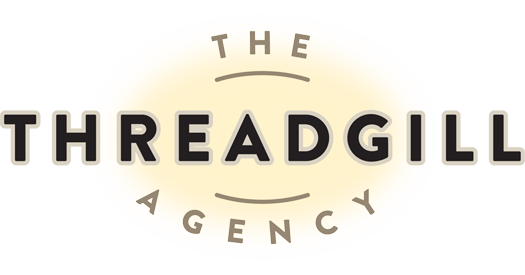
23 Aug Improve Your Web Rankings: Shut the Door on Spammy Doorway Pages
Competition for top-level search results is fierce, and some spammers and web developers are trying to stack the odds in their favor with little-value Doorway pages. This decade-old technique of trying to create pages just for SEO rankings, however, can actually hurt your visibility.
“Doorway pages are a scheme to get results with a bigger, broader search footprint, but are a mile wide and an inch deep in terms of quality,” says Mat Threadgill of The Threadgill Agency.
You might be asking, “Is my website accidentally using Doorway pages? Do landing pages count? What about multi-location pages?” Take a deep breath and read more about Doorway pages and how to avoid them — and their related penalties.
What are Doorway Pages?
Doorway pages are defined as web pages created only to rank for specific search queries, but provide little to no value to the searcher. Google provides these specifics regarding Doorway Pages:
- Having multiple domain names or pages targeted at specific regions or cities that funnel users to one page
- Example: Houston motorcycle helmets, Chicago motorcycle helmets, New York motorcycle helmets that automatically redirect to the same webpage
- Pages generated to funnel visitors into the actual usable or relevant portion of your site(s)
- Example: A dog food company that creates Doorways with natural dog food for huskies, natural dog food for chihuahuas, natural dog food for golden retrievers, and lists for each individual breed that then all lead to the same page
- Substantially similar pages that are closer to search results than a clearly defined, browseable hierarchy
- Example: Different urls not visible in the sitemap for pages with titles for bike repair, bicycle repair, mountain bike repair, and street bike repair that don’t offer unique, valuable content
Google, who holds more than 61% of the U.S. search engine market, says Doorways “are bad for users because they can lead to multiple similar pages in user search results, where each result ends up taking the user to essentially the same destination. They can also lead users to intermediate pages that are not as useful as the final destination.”
Ranking Impact and Penalties
Doorways not only violate Google’s guidelines and provide no reader value, but they cloud visibility for useful, relevant sites. Considered Black Hat SEO techniques, Doorways are deceptive to both search engines and users — like those repetitive, robo-spam calls for your car warranty. Black Hat SEO ignores the guidelines and best practices, trying to increase rankings through dishonest tactics like keyword stuffing, duplicate or plagiarized content, cloaking, hidden text, and more.
Google doesn’t take kindly to Doorway pages and has systems in place to identify and penalize them. Google penalizes sites that use Doorways in two ways: 1) An Algorithmic Penalty that results in less traffic and visibility in search results and 2) Manual Action that flags your website for de-listing until changes are made. You can view these penalties under your Google search console account under “Search traffic > Manual actions.”
With several algorithm updates a month, Google’s webspam team works to ensure quality search engine results pages (SERPs) for the best user experience. An algorithmic update means Google is catching and addressing ways that spammers and developers are trying to circumvent guidelines and best practices to “stack the deck” in their favor. Doorway pages, for example, can create a full page of results directing to one website, resulting in lots of bounces (single-page visits) from unhappy searchers.
The Penalty: Algorithmic Penalty
These algorithmic penalty updates are automatic and no communication is sent to the website owner. You’ll notice a decrease in traffic, but Google won’t specify what changes need to be addressed to remove the penalty.
- The Fix: Since you don’t know what exactly has you on the bad list, check out Google’s blog and online forums to see if others have gotten caught up in the algorithm update. Then focus on creating quality content and get rid of any Black Hat SEO techniques. Once you clean up your site, the penalty is removed. Read more on how to handle an algorithmic penalty.
The Penalty: Manual Action
Your site is flagged with Manual Action by an actual Google team member checking for webmaster quality guidelines. Spam or inappropriate content will result in your site being delisted until changes are made. Specific reasons will be outlined in the penalty.
- The Fix: You can fix the mistakes and file a reconsideration request. The web spam team will review your changes and lift the ban if your corrections adhere to their quality guidelines.
If you try to shortcut some of the fixes, don’t be surprised if you’re still penalized. “Google can figure out doorway pages through user experience metrics, backlinks, original content and a lot of other factors, so spinning content or adding jargon to the page won’t help fix doorway pages on your site,” warn experts at Cult of Web.
Accidental Doorway Pages?
What if you unknowingly have Doorway pages on your site, impeding your web traffic? Review these questions to evaluate your site for potential Doorways.
Specifically, what about location pages for a multi-site business? Doorway page creators use city names to stuff keywords without providing relevant content. For businesses with actual multiple locations, experts advise that you don’t use identical content on each location page with only slight variations. Read Google’s Advice For Targeting Multiple Locations With One Website.
What about landing pages for specific eCommerce sales or marketing campaigns? Landing pages are often created as standalone pages for a specific purpose, not listed in your website’s navigation. They provide relevant information, don’t automatically redirect, and are a step in the conversion chain. Landing pages, then, are not considered Doorway pages by search engines.
Finally, what’s the best way to improve your web rankings?
Create quality user-value content on every page of your site and get rid of the rest. Make sure your site speed is optimal regarding design, images, response time, and mobile-friendliness. Use a good keyword strategy and tracking tools. Finally, run pay-per-click campaigns and utilize influencers and user-generated content to get the word out about your products or services.
If you need help evaluating your website for Doorway pages and building quality search-worthy content, contact The Threadgill Agency to get started.
